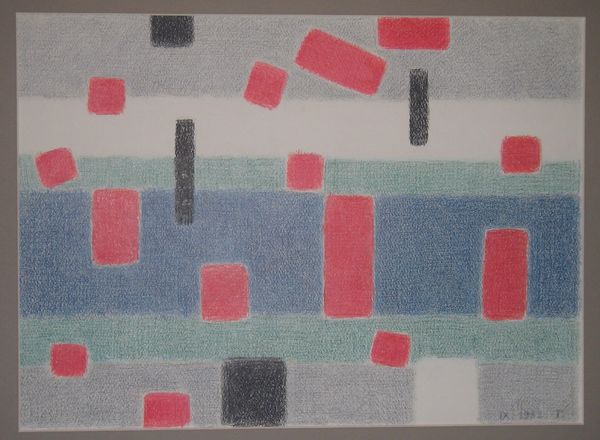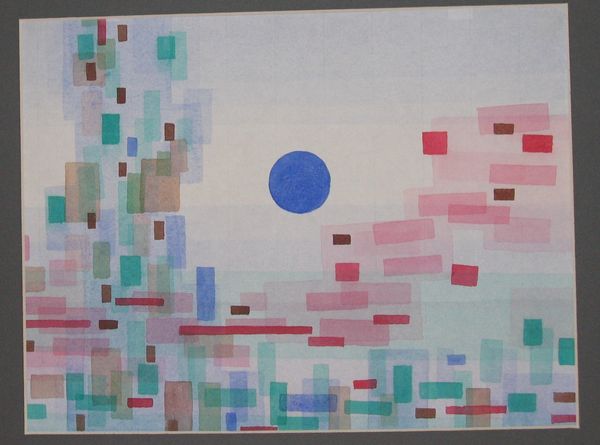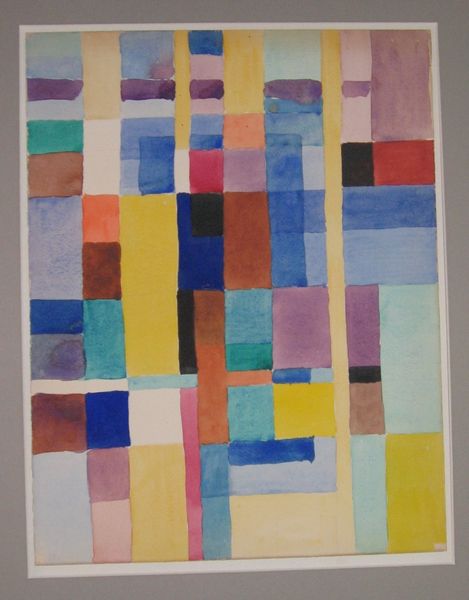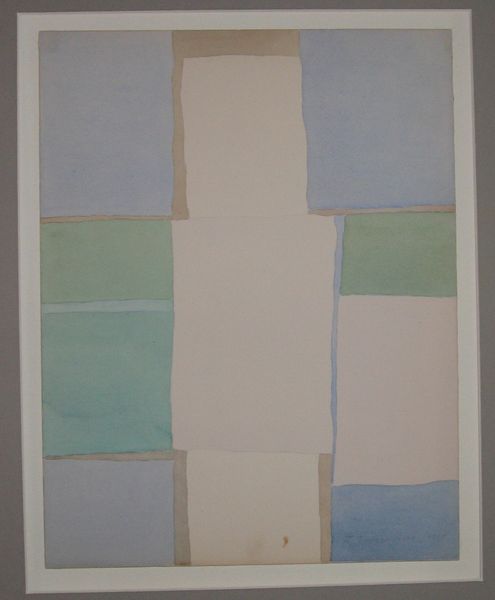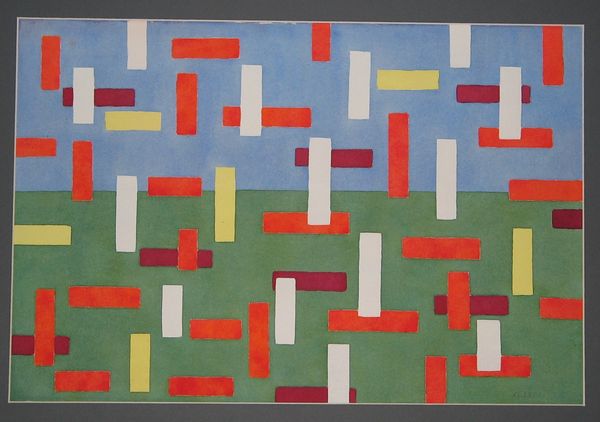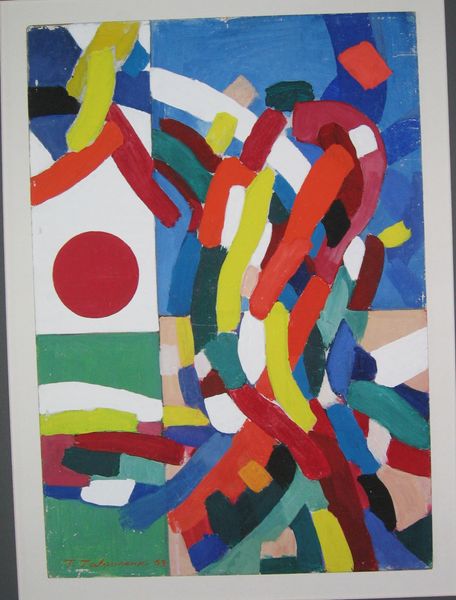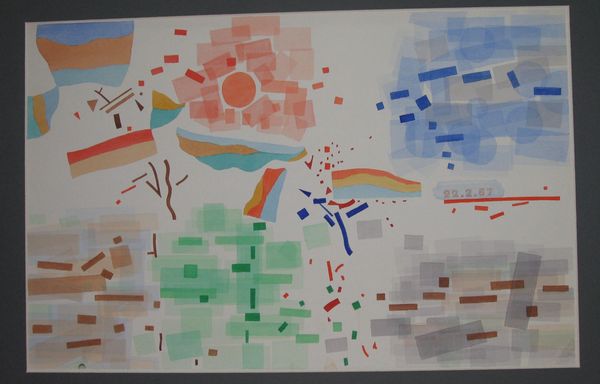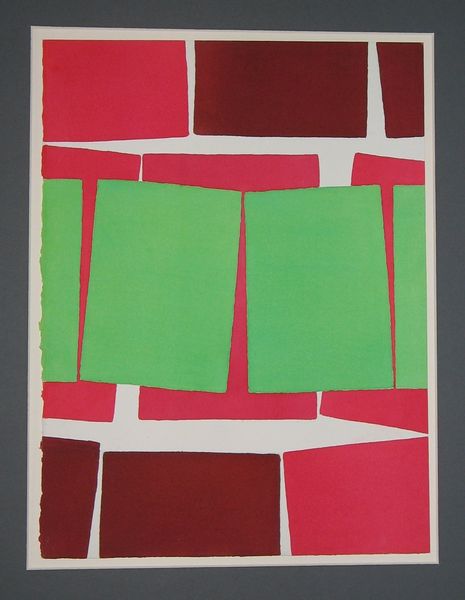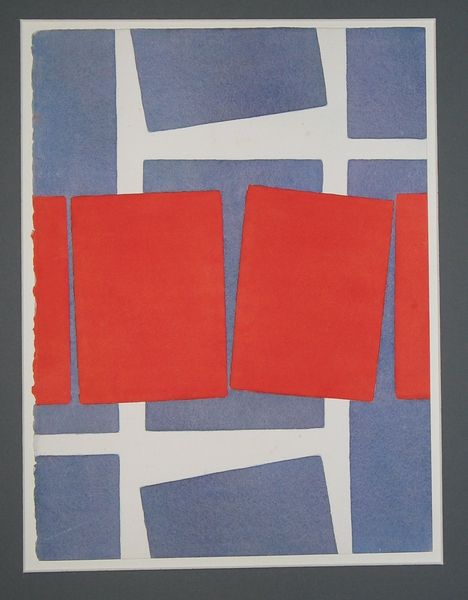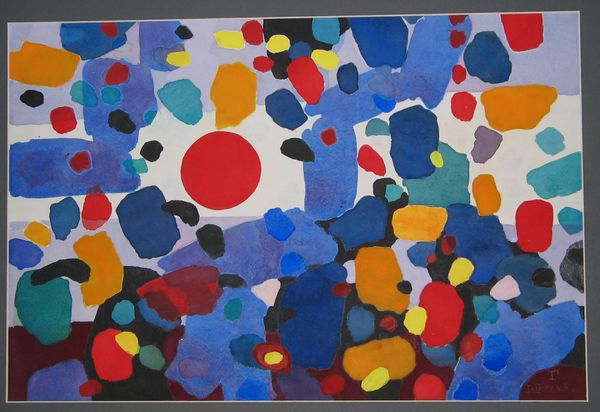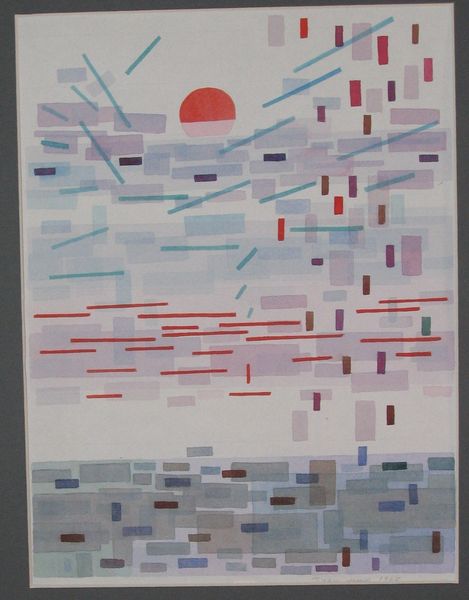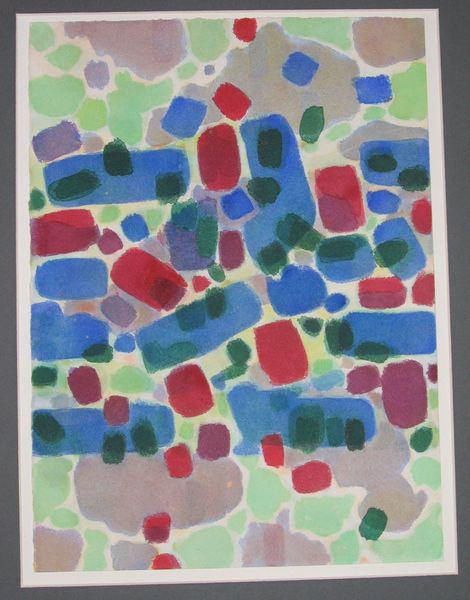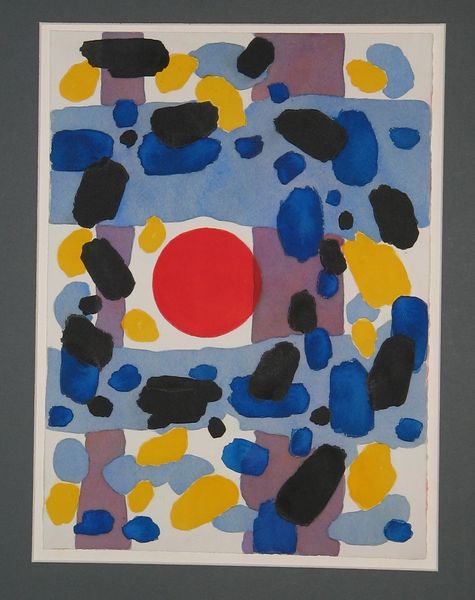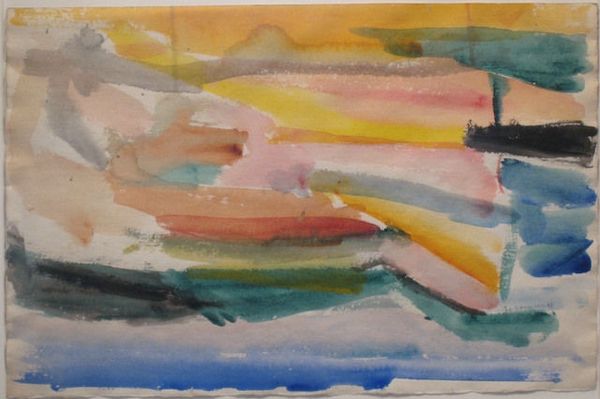
painting, watercolor
#
water colours
#
painting
#
colour-field-painting
#
watercolor
#
geometric
#
abstraction
#
modernism
#
watercolor
Copyright: Hryhorii Havrylenko,Fair Use
Editor: Here we have Hryhorii Havrylenko's "Composition" from 1967, a watercolor painting featuring a range of geometric forms in various hues. I'm struck by the way these shapes overlap, creating a sense of depth and movement. What can you tell me about this work? Curator: The first thing that catches my eye is the deliberate layering of the watercolors, creating a transparency that belies the inherent materiality of the pigments themselves. We're meant to consider the means by which this image came into being. Think about the social context: in 1967, abstraction had become very popular, seemingly divorced from its own social conditions, but the materials themselves - watercolour - implies process, and links itself more closely to labour. Editor: That's fascinating! So, are you suggesting that his choice of watercolour over, say, oil paint, carries some deeper meaning relating to artistic process or even something about its context of production? Curator: Precisely. The fluid nature of watercolor resists the kind of clean, machine-like precision one might expect in a modernist composition. By using watercolor and overlapping colours to produce new forms through layering, we also need to ask ourselves - where did these colours and forms originate, and whose labour facilitated their application? Editor: I see. It shifts the focus from just admiring the end result to considering the artist's choices and even how the art industry may function, perhaps not as neutral a thing as we assumed! Curator: Exactly. Havrylenko's "Composition," like so many seemingly “purely aesthetic” works, reminds us that art is fundamentally a product of materials, labor, and social forces, not merely aesthetic contemplation, that must never escape consideration. Editor: Well, I definitely see it differently now. Thanks for that insight. I have to look for those implications in future works, and consider production.
Comments
No comments
Be the first to comment and join the conversation on the ultimate creative platform.
